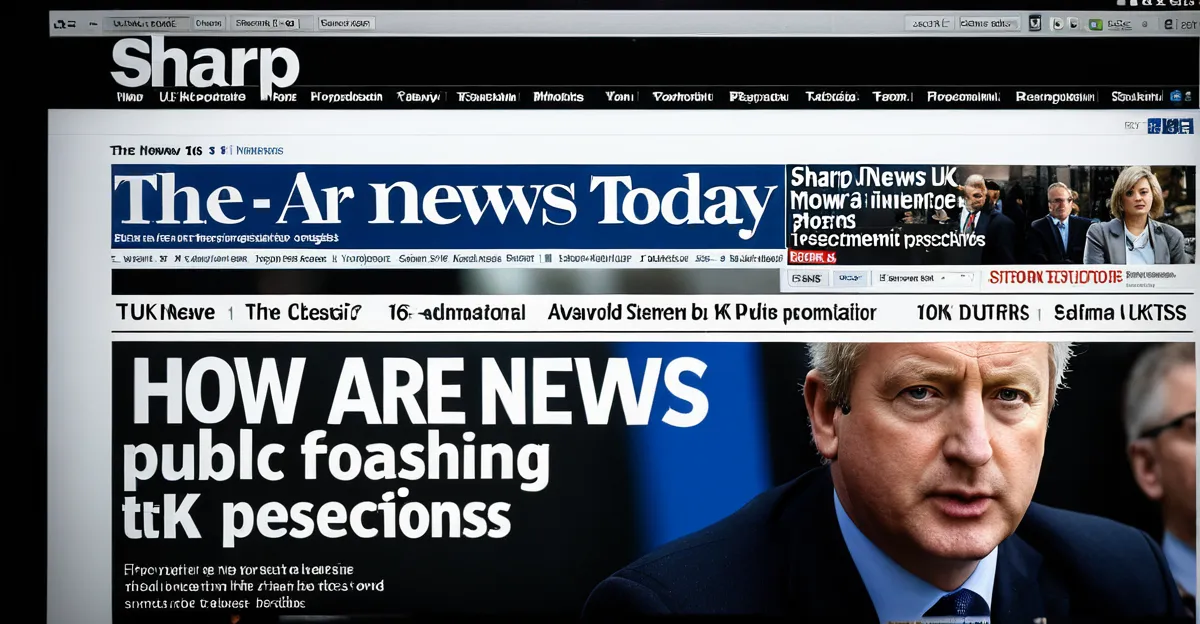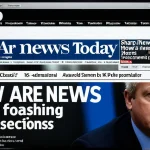Leading UK News Outlets and Their Editorial Perspectives
UK news outlets hold diverse and distinct editorial stances that shape the national media landscape. Key players include broadcast giants like the BBC and ITV, renowned for their broad public service remit, alongside influential print media such as The Guardian, The Times, and The Telegraph. These organisations cater to varied audiences, each with unique preferences and expectations.
Editorial priorities often align with their political and cultural leanings. For example, The Guardian frequently adopts a progressive viewpoint, focusing on social justice and environmental issues, while The Telegraph tends to emphasise conservative perspectives. This spectrum of editorial stances influences how stories are framed and which topics receive prominence.
Also read : How is climate change impacting agriculture in the UK?
Broadcast platforms play a crucial role in setting the news agenda with live reporting and extensive coverage, while print and digital outlets provide detailed analysis and opinion pieces. The growing influence of digital media allows UK news outlets to engage wider and younger audiences, blending traditional journalism with interactive content. This mixture ensures that the UK media landscape remains dynamic, shaping public discourse through multiple channels and voices.
Mechanisms of Influence: How Reporting Shapes Public Attitudes
Understanding media influence requires examining how UK news outlets use framing and agenda-setting to shape public opinion formation. Framing involves selecting specific aspects of a story while omitting others, guiding audiences toward certain interpretations. Agenda-setting determines which topics become prominent, effectively shaping what people consider important.
Also read : How is the NHS managing healthcare challenges?
Editorial bias and selective reporting significantly affect the news reporting impact. When media emphasise particular viewpoints or exclude diverse perspectives, they can skew public perception, sometimes unintentionally reinforcing existing beliefs. This effect is especially potent in emotionally charged or politically sensitive contexts.
The use of expert commentary also plays a vital role in building audience trust and enhancing credibility. Experts provide authority and context, helping consumers to understand complex issues. However, the selection of which experts to feature can reflect underlying editorial stances, further influencing media influence.
In sum, reporting mechanisms such as framing, bias, and expert input actively shape how news audiences form opinions, highlighting the powerful role of news reporting impact in the evolving UK media landscape.
Recent Examples of UK Media Impact on Public Debate
Major UK news outlets have repeatedly demonstrated their capacity to shape public debate through influential coverage of political and social events. For example, during the 2019 general election, several outlets’ editorial stances significantly affected voter perceptions by framing key issues differently—The Guardian focused on climate change urgency, while The Times emphasised economic stability. This framing guided public understanding and voting behaviour, illustrating the media’s pivotal role in public opinion formation.
In instances such as the Black Lives Matter protests, UK news coverage showed how language choices and selective reporting influence public attitudes. Tabloid versus broadsheet narratives often diverged, shaping different emotional responses among audiences. Social media further amplified these narratives, providing real-time public reaction and increasing the news stories’ reach and impact.
These media case studies highlight the powerful interplay between traditional coverage and digital platforms. They confirm how diverse UK news outlets contribute to evolving public discourse by setting agendas, reinforcing perspectives, and prompting societal reflection on critical issues. Such examples underscore the profound news reporting impact within the UK’s complex media landscape.
Expert Insights and Relevant Media Research
Academic analysis and media theory highlight how UK news outlets profoundly impact public opinion formation. Research consistently shows that framing and agenda-setting steer audience perceptions, reinforcing the critical role of editorial decisions in shaping societal attitudes. Experts from media studies emphasise that diversified editorial stances contribute to a pluralistic media landscape, fostering democratic debate but also creating challenges around bias and misinformation.
Journalists and scholars alike note the evolving dynamics between news consumers and outlets. The rise of digital platforms has transformed traditional media engagement, allowing for interactive feedback and increased scrutiny of journalistic standards. This shift demands new skills in discerning reliable sources and understanding media influence mechanisms.
Such expert commentary underscores the value of transparency and ethical reporting in maintaining public trust. Studies reveal that when audiences perceive journalists as unbiased and accountable, the news reporting impact becomes more constructive, fostering informed citizenship. Conversely, perceived editorial bias can erode credibility and deepen societal divides.
In brief, current research and opinions from media experts highlight that understanding the complex interplay between editorial choices, audience perceptions, and technological change is vital for grasping the modern UK media landscape.





